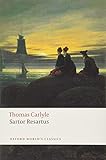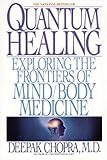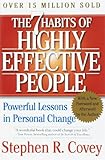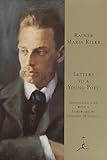1. Step One: Admit You Have a Problem
Last month, New York Times critic Dwight Garner wrote a lukewarm review of two “philosophical” self-help books, the first installments in a series edited by Alain de Botton called The School of Life. Towards the beginning of the review we are cautioned that self-help books can be “fraught with peril,” attended by the risk “of leading millions of your innocent brain cells into the killing fields.” (The books under consideration appear to have been only mildly perilous.)
 Garner’s disdain for the genre is nothing new. Disgust with self-help has been around since Dr. Samuel Smiles wrote his lucrative 1859 classic Self-Help, followed by a popular series of sequels: Character, Thrift, Duty, and Life and Labour. A laudatory 1893 review of this oeuvre begins with a telling disclaimer: “It is the fashion these days to speak in anything but complementary terms of Dr. Smiles and his different books…” Apparently hating on self-help was common practice by the turn of the century. The preface to the Oxford Classics edition of Self-Help cites a particularly blunt example, written by Irish author Robert Tressell in 1906: “[Self-Help] is suitable for perusal by persons suffering from almost complete obliteration of the mental faculties.”
Garner’s disdain for the genre is nothing new. Disgust with self-help has been around since Dr. Samuel Smiles wrote his lucrative 1859 classic Self-Help, followed by a popular series of sequels: Character, Thrift, Duty, and Life and Labour. A laudatory 1893 review of this oeuvre begins with a telling disclaimer: “It is the fashion these days to speak in anything but complementary terms of Dr. Smiles and his different books…” Apparently hating on self-help was common practice by the turn of the century. The preface to the Oxford Classics edition of Self-Help cites a particularly blunt example, written by Irish author Robert Tressell in 1906: “[Self-Help] is suitable for perusal by persons suffering from almost complete obliteration of the mental faculties.”

 Yet, in one of his many legacies to modern self-help, Smiles was both widely reviled and fantastically successful. He quickly became a household name in the English-speaking world — early printings of Self-Help sold out instantly, one of them reportedly purchased by Charles Darwin, whose Origin of Species was published in the same year. Success was equally explosive abroad. Nakamura Masanao’s somewhat liberal 1871 Japanese translation Saigoku risshihen (“Success Stories of the West”) eventually sold a million copies, serving as an exotic Western repackaging of stale Neo-Confucian values. (Scholars also credit Saigoku risshihen with introducing Hamlet to Japan: three lines from Polonius’s “Neither a borrower nor a lender be…” are the epigram for Chapter 10, “Money, It’s Use and Abuse.”)
Yet, in one of his many legacies to modern self-help, Smiles was both widely reviled and fantastically successful. He quickly became a household name in the English-speaking world — early printings of Self-Help sold out instantly, one of them reportedly purchased by Charles Darwin, whose Origin of Species was published in the same year. Success was equally explosive abroad. Nakamura Masanao’s somewhat liberal 1871 Japanese translation Saigoku risshihen (“Success Stories of the West”) eventually sold a million copies, serving as an exotic Western repackaging of stale Neo-Confucian values. (Scholars also credit Saigoku risshihen with introducing Hamlet to Japan: three lines from Polonius’s “Neither a borrower nor a lender be…” are the epigram for Chapter 10, “Money, It’s Use and Abuse.”)
Self-Help achieved a near-sacred status across the globe. It was translated into over a dozen languages (Dutch: Help u Zelfen) and did well in all of them. In his autobiography, Smiles recounts the following illustrative anecdote, related to him by a friend (and there is no reason to disbelieve it):
An English visitor to the Khedive’s palace in Egypt asked from what source the mottoes written on the walls were derived. “They are principally from Smeelis,” he was told, “you ought to know Smeelis! They are from his Self-Help; they are much better than the texts from the Koran!”

 There are some for whom the very act of comparing “Smeelis’s” work with a foundational religious text will feel vaguely sacrilegious. The same kind of sacrilege is committed by Tom Butler-Bowdon in his meta-self-help bestseller, 50 Self-Help Classics, a Cliff’s Notes style alphabetical review in which Martha Beck’s Finding Your Own North Star is followed by the Bhagavad-Gita, and Wayne Dyer’s Real Magic precedes Ralph Waldo Emerson’s Self-Reliance.
There are some for whom the very act of comparing “Smeelis’s” work with a foundational religious text will feel vaguely sacrilegious. The same kind of sacrilege is committed by Tom Butler-Bowdon in his meta-self-help bestseller, 50 Self-Help Classics, a Cliff’s Notes style alphabetical review in which Martha Beck’s Finding Your Own North Star is followed by the Bhagavad-Gita, and Wayne Dyer’s Real Magic precedes Ralph Waldo Emerson’s Self-Reliance.
Self-help detractors would want to accuse the Khedive palace architect of poor taste, and Butler-Bowdon of making a self-serving category mistake, elevating profitable trash by placing it in illustrious company. Others, like Alain de Botton, might call such accusations snobbish and unjustified, reflexive dismissals of recent work in the venerable tradition of wisdom literature, a tradition that traces its lineage back to the Dao-de-jing. Stoic philosophy, and the Bible.
 No one expresses this tension better than Scottish historian and essayist Thomas Carlyle. Although Carlyle makes a cameo in Self-Help (as an exemplar of indefatigable industriousness), Smiles seems to have missed the appearance of his favorite concept in Carlyle’s satirical novel, Sartor Resartus. The novel purports to tell the true story of a German philosopher who develops a transcendentalist theory of clothing. In one of the earliest non-juridical uses of the term, this sartorial philosopher “acquires for himself” the virtue of Self-Help, which Carlyle’s narrator describes as “the highest of all possessions.”
No one expresses this tension better than Scottish historian and essayist Thomas Carlyle. Although Carlyle makes a cameo in Self-Help (as an exemplar of indefatigable industriousness), Smiles seems to have missed the appearance of his favorite concept in Carlyle’s satirical novel, Sartor Resartus. The novel purports to tell the true story of a German philosopher who develops a transcendentalist theory of clothing. In one of the earliest non-juridical uses of the term, this sartorial philosopher “acquires for himself” the virtue of Self-Help, which Carlyle’s narrator describes as “the highest of all possessions.”
But we cannot trust this description. Sartor Resartus is laced with irony (a rhetorical technique notably absent from most self-help, which is nothing if not earnest). Carlyle’s protagonist, for instance, is named Diogenes Teufelsdröckh, which translates to God-born Devil’s Shit. In the ironizing shadow of Teufelsdröckh, everything in Sartor Resartus looks a little like divine truth and a little like incoherent platitude, from the self-helpish notion of the EVERLASTING YEA, “wherein all contradiction is solved,” to the very concept of self-help that Carlyle helps inaugurate. In other words, Teufelsdröckh makes me wonder: The EVERLASTING YEA, Self-Help, Samuel Smiles, The School of Life — are these essentially God-born or Devil’s Shit? That’s my problem. I don’t know how to feel about self-help. And like it says in the Bible, or the Bhagavad-Gita, or maybe it was Ben Franklin, 99% of solving a problem is identifying it, so I’m well on my way!
2. Step Two: Look Inside Yourself
It is always tempting to answer questions via a scholarly, objective route: are we more convinced by sociologist Micki McGee, whose analysis reveals self-help literature as a pernicious facilitator of American egoism and oppressive social norms, or by folklorist Sandra K. Dolby, who identifies in self-help the universal rhythms and patterns of parables and folk wisdom? While researching this essay, however, I learned from numerous self-help authors that answers to profound philosophical questions don’t come from other people, especially not scholars. I also learned the sad truth about “objectivity,” a pseudo-concept that Daoist sages, quantum physicists, and Deepak Chopra’s tweets have all shown to be objectively false.
What’s left? Where can we turn?
The only person you can depend on for answers is YOU, which means consulting your own, unmediated, subjective feelings, and then allowing them to speak the Truth.
 Okay, here goes. When it comes to self-help, my unmediated, subjective feelings place me squarely in the Devil’s Shit camp. Just reading certain titles (Learning to Dance in the Rain, To a Child Love is Spelled T-I-M-E) prompts a deep and spontaneous revulsion. This revulsion is both aesthetic, a matter of taste, and intellectual, a matter of truth. And it is unique, reserved for a very small number of cultural products — off the top of my head I come up with Thomas Kinkade paintings, smooth jazz, and televangelism. (Olive Garden? Close, but not quite.)
Okay, here goes. When it comes to self-help, my unmediated, subjective feelings place me squarely in the Devil’s Shit camp. Just reading certain titles (Learning to Dance in the Rain, To a Child Love is Spelled T-I-M-E) prompts a deep and spontaneous revulsion. This revulsion is both aesthetic, a matter of taste, and intellectual, a matter of truth. And it is unique, reserved for a very small number of cultural products — off the top of my head I come up with Thomas Kinkade paintings, smooth jazz, and televangelism. (Olive Garden? Close, but not quite.)
It’s clear to me why televangelism makes the list. There’s obvious crossover between evangelism and self-help, their easy synthesis epitomized by Joel Osteen and Rick Warren. Christian self-help is a sub-genre so ubiquitous that when I entered a Christian bookstore and asked for the self-help section, one employee looked at me quizzically and said, “Well, that’s pretty much everything in here, unless you’re looking for a Bible.” Nominally secular self-help routinely borrows Christian terms and metaphors (calling, mission). Even science-y Tony Robbins is indebted to televangelism — sociologist McGee quotes Robbins’s infomercial co-producer Greg Renker: “The infomercial boomed because the televangelists ran into problems. We are the new televangelists.”
The link between self-help and televangelism helps make sense of my intellectual revulsion. Rick Warren may be a charismatic speaker, but he is a lousy interpreter of the Bible. Take, for example, his reading of Jeremiah 29:11, where God says, “For I know the plans I have for you, plans to prosper you and not to harm you, plans to give you hope and a future.” Warren takes the passage out of context and reads it as an uplifting message for everyone. But God’s words in Jeremiah 29:11 are actually meant specifically for the Israelites exiled from Jerusalem to Babylon. Contextualization is important, because without it one could appropriate Jeremiah 29:18 to show that God suffers from wild mood swings (“I will send the sword, famine and plague”), or Jeremiah 29:26 as justification for locking up people like Rick Warren: “You should put any maniac who acts like a prophet into the stocks and neck-irons.”
 Many self-help books take similar liberties with science, history, and Eastern philosophy, my own area of expertise. I can only assume that quantum physicists are as frustrated by Deepak Chopra’s Quantum Healing as I am by the short biography of Laozi on the front flap of Dr. Wayne Dyer’s version of the Dao-de-jing: “Five hundred years before the birth of Jesus, a God-realized being named Laozi in ancient China dictated 81 verses…” While I share Dyer’s admiration of the Dao-de-jing, it’s unclear to me why extolling its virtues entails willful ignorance (or duplicity) about its origins. Wikipedia helpfully points out that sinologists have serious doubts about Laozi’s historical existence, and a quick read of D.C. Lau’s preface to the Penguin edition explains the composite nature of the text. One thinks Dyer’s extensive research (mentioned repeatedly) would have turned up Lau’s influential analysis, but it is nowhere to be found.
Many self-help books take similar liberties with science, history, and Eastern philosophy, my own area of expertise. I can only assume that quantum physicists are as frustrated by Deepak Chopra’s Quantum Healing as I am by the short biography of Laozi on the front flap of Dr. Wayne Dyer’s version of the Dao-de-jing: “Five hundred years before the birth of Jesus, a God-realized being named Laozi in ancient China dictated 81 verses…” While I share Dyer’s admiration of the Dao-de-jing, it’s unclear to me why extolling its virtues entails willful ignorance (or duplicity) about its origins. Wikipedia helpfully points out that sinologists have serious doubts about Laozi’s historical existence, and a quick read of D.C. Lau’s preface to the Penguin edition explains the composite nature of the text. One thinks Dyer’s extensive research (mentioned repeatedly) would have turned up Lau’s influential analysis, but it is nowhere to be found.
So, unsurprisingly, my intellectual revulsion is a reaction to untruth, the result of either idiocy or mendacity, depending on the self-help author in question. In order to explain my aesthetic revulsion, then, I merely need to figure out what self-help shares with smooth jazz and Thomas Kinkade.
Hmm. What could the Painter of Light™ have in common with self-help authors? Famous for his religiously-themed art, yet fond of public urination, accused of ruthless business practices, dead at 54 from a valium and alcohol overdose, the subject of posthumous scandal when his wife placed a restraining order on his girlfriend. Surely famous self-help authors don’t have similarly sordid and profit-driven biographies…
No! Wait! This is just a distracting, ad hominem argument that can’t prove anything about the aesthetics of Kinkade’s work or self-help books. Block out the negative energy. Focus. Look through your inner eye (eyes?) at the glowing pink cottage. What do you see? Listen with your inner ear to Kenny G. What do you hear? Read Stephen Covey with your heart. What do you feel?
 I see… I hear… I feel… nothing. Nothing! That’s it! Kinkade’s over-saturated pastels, Kenny G’s bland solos, The Seven Habits of Highly Effective People: they have no soul. And this, ultimately, is the source of my aesthetic revulsion. It’s not that self-help writers are unskilled, though many of them are. It’s that they exploit a formula: co-opt an established authority (religion, philosophy, science, historical hero, literary master), add uplifting anecdotes, mix with self-adulation and empty promises, season with acronyms or lucky numbers, and serve! (I’ll leave it to art critics and music critics to detail the formulas behind smooth jazz and Kinkade’s mass-produced schlock.)
I see… I hear… I feel… nothing. Nothing! That’s it! Kinkade’s over-saturated pastels, Kenny G’s bland solos, The Seven Habits of Highly Effective People: they have no soul. And this, ultimately, is the source of my aesthetic revulsion. It’s not that self-help writers are unskilled, though many of them are. It’s that they exploit a formula: co-opt an established authority (religion, philosophy, science, historical hero, literary master), add uplifting anecdotes, mix with self-adulation and empty promises, season with acronyms or lucky numbers, and serve! (I’ll leave it to art critics and music critics to detail the formulas behind smooth jazz and Kinkade’s mass-produced schlock.)
 But true soullessness goes beyond formula. After all, fairy tales and blues are as formulaic as it gets, and they are God-born through and through. No, Devil’s Shit only results when formulas are calculated to produce maximal ease and safety, and then used to manufacture religious insights, jazz, or the self, products that are by nature challenging, dangerous, and complicated. That’s why 18th century morality tales for children (The History of Little Goody Two-Shoes, etc.) are so repugnant. Seven Easy Tricks for a Delicious Sandwich isn’t sacrilege — it’s a cookbook. But Seven Easy Tricks to Save Your Soul…
But true soullessness goes beyond formula. After all, fairy tales and blues are as formulaic as it gets, and they are God-born through and through. No, Devil’s Shit only results when formulas are calculated to produce maximal ease and safety, and then used to manufacture religious insights, jazz, or the self, products that are by nature challenging, dangerous, and complicated. That’s why 18th century morality tales for children (The History of Little Goody Two-Shoes, etc.) are so repugnant. Seven Easy Tricks for a Delicious Sandwich isn’t sacrilege — it’s a cookbook. But Seven Easy Tricks to Save Your Soul…
In short: Only Satan could enjoy reading The Purpose Driven® Life while listening to smooth jazz in a room filled with Kinkade landscapes. Actually, that’s not quite it. Only Satan could enjoy producing such a scene.
3. Step Three: Stand Up for What You Believe
Objection 1: Self-help books work for me/work for people, so why be nasty about them?
Answer: This objection rests on two flawed premises. The first is that self-help books work for people. While twelve-step programs (a noble relative of self-help books) enjoy some empirical validation, self-help books do not. This lack of validation will not deter self-help fans, fond as they are of anecdotal evidence. That’s fine. Victims of medical quackery are notoriously unwilling to admit the inefficacy of their favored panacea, even when it has obviously failed them. Why should it be any different for victims of spiritual quackery? Nevertheless, for the sake of explanation: as in those cases when astonishing cancer recoveries are misattributed to faith-healing or coffee-enemas, it’s likely that the perceived efficacy of self-help books is due to chance, the passage of time, or unsung orthodox treatment (therapy, exercise, friendship) undertaken in conjunction with the miracle cure.
The second flawed premise is that one shouldn’t be nasty about things that work. The geocentric model of the universe worked (Gee, our planet is super-special!). Propaganda works (Gee, our country is super-special!). Falsehoods and empty rhetoric deserve to be unmasked because people are entitled to think for themselves about important truths, even at the cost of happy complacency. And never fear, there’s all sorts of writing that can replace the crap I’m spoiling—just comb the epigrams of any self-help book and read whatever it is they came from.
Objection 2: But there’s lots of good self-help! Haven’t you heard of Aesop’s Fables?
 Answer: Fair enough. A wildly broad definition of self-help ends up including everything from Aesop’s Fables to Rilke’s Letters to a Young Poet to Thomas Merton’s New Seeds of Contemplation, books well-worth reading and re-reading. But the problem is not with offering life counsel. The problem is with counsel that promises quick fixes and simple solutions, promises that are definitive of self-help. Otherwise there would be no need for the term at all: we already have philosophy, religion, fiction, psychology, economics, biography. What distinguishes self-help from these other categories is how it markets the allure of certain success in an endeavor where success is never certain, an approach evident in less unholy forms of self-help like diet books. As with propaganda, the evil is built right into the meaning of the genre, poisoning anything so-classified (even decent stuff) simply by association.
Answer: Fair enough. A wildly broad definition of self-help ends up including everything from Aesop’s Fables to Rilke’s Letters to a Young Poet to Thomas Merton’s New Seeds of Contemplation, books well-worth reading and re-reading. But the problem is not with offering life counsel. The problem is with counsel that promises quick fixes and simple solutions, promises that are definitive of self-help. Otherwise there would be no need for the term at all: we already have philosophy, religion, fiction, psychology, economics, biography. What distinguishes self-help from these other categories is how it markets the allure of certain success in an endeavor where success is never certain, an approach evident in less unholy forms of self-help like diet books. As with propaganda, the evil is built right into the meaning of the genre, poisoning anything so-classified (even decent stuff) simply by association.
In an essay defending self-help, Alain de Botton writes, “The ancient philosophers recognized we all need help navigating our lives – so what explains self-help books’ decline in prestige?” But he is conflating wise masterpieces, which haven’t declined in prestige (does anyone trash Letters to a Young Poet?), with self-help, which, as we have seen, was always immensely popular and never prestigious. Ancient and modern philosophy already have a section in the bookstore. Categorizing them as self-help is a straightforward move made to sell more books by lacquering them with false hope. (Which is why it’s no shock that de Botton’s spirited defense appeared in the Guardian just after his School of Life series debuted.)
Objection 3: You’re a cultural elitist.
Answer: Really? George Carlin, the same guy who hated parents that wear Baby-Bjorns, put “these people that read self-help books” first on his list of “people who ought to be killed.” The problem with this objection is that it confuses good judgment with elitism, a confusion that is itself elitist. In a recent New York Magazine article, Kathryn Schulz describes her vision of someone who looks down on self-help: “I know people who wouldn’t so much as walk through the self-help section of a bookstore without The Paris Review under one arm and a puzzled oh-I-thought-the-bathroom-was-over-here look on their face.” De Botton agrees: “The unstated assumption of the cultural elite is that really only stupid people read them.”
Actually, it is an unstated assumption of the cultural elite that only those with high-falutin’ humanities degrees have a nose for Devil’s Shit. This is manifestly false. All you need to loathe smooth jazz is an ear for music. Anyone equipped with a moral compass who has heard the Sermon on the Mount will be revolted by Osteen’s pearly-toothed prosperity gospel. And it doesn’t take a rocket scientist to see the paradox in self-help’s insipid affirmation of its readers’ inner strength. In Carlin’s words, “The part I really don’t understand, if you’re looking for self-help, why would you read a book written by somebody else?! That’s not self-help, that’s help! There’s no such thing as self-help… if you did it yourself, you didn’t need help. You did it yourself! Try to pay attention to the language we’ve all agreed on!”
To be fair, Carlin might be trying to put his competition out of business, since he’s hawking his own brand of simple, formulaic wisdom: “Life is not that complicated. You get up, you go to work, you eat three meals, you take one good shit and you go back to bed. What’s the fucking mystery?”
Now there’s some good self-help, straight from the mouth of Diogenes Teufelsdröckh.








